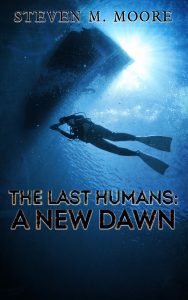Orphans…
I still believe that small presses are a good choice for authors who want to publish their books traditionally—they at least offer some TLC none of the Big Five can provide (or is it the Big Four now with Simon & Schuster merging with Penguin Random House?). But many of them have become little more than POD outfits, due to economic hardships, so that old advantage of getting books in bookstores has all but disappeared (bookstores require books to be returnable, and POD books are not). Even the use of Ingram (rare now) doesn’t guarantee that as Ingram puts minimum run limits on the industry. Many small presses don’t require agents, not a bad thing per se considering how little agents do for authors, but publication delays are still a problem if an author wants to publish in a timely fashion.
Most small presses live on the edge. I call it the supermarket model because their net profits are determined by small per-item margins. If their catalog is small and/or genre-limited, they will have problems. If it’s too large, they still can because they can’t manage a big catalog well. Like grocery stores, small-press shelves have to be stocked just right to survive. In any case, very few small presses offer marketing help due to this business model, which hurts them more than their authors because they take the lion’s share of the royalties, a ubiquitous error because seventy-five percent of nothing is still nothing! (The Big Five publishing conglomerates have these problems too, of course.)
Traditional publishers offer less and less for the same share of royalties (authors generally receive between ten and twenty percent). With the possible addition of agency fees, it’s no wonder many authors turn more and more to some form of self-publishing, although most aren’t 100% DIY (paying for editing, formatting, and cover art is recommended). This was my case, so I tried traditional publishing because at least a small press usually pays for those upfront costs—their authors don’t have to pay for everything.

Unfortunately that “living on the edge” small presses do can lead to book orphans. This was the case for my Death on the Danube and The Last Humans: A New Dawn. The small press that published the first two books in the “Esther Brookstone Art Detective” series would only continue with the third if I paid the upfront costs. The one that published The Last Humans never completed its contractual obligations for the sequel, primarily because of a reorg. Both books were orphaned. I self-published them, the second just last week and the first a few months ago.
Hindsight is often twenty-twenty they say, but I can no longer recommend traditional publishing to any author. The chances for bad experiences are just too great.
But what of that TLC I mentioned? In other words, won’t self-published authors miss out on some coddling that they’ll never receive if they self-publish or traditionally publish with a huge publishing conglomerate? Yes they will. I still value friendships made during my small-press adventures—relationships with editors, cover artists, and, above all, authors also published by them; these are all considered valuable experiences. But one has to move on—butting one’s head against a stone wall doesn’t help anyone’s storytelling!
***

Comments are always welcome.
The Last Humans: A New Dawn. In the first book in this series, Penny Castro survived the biowarfare apocalypse and created a family. In this sequel, her post-apocalyptic idyll on their citrus ranch is interrupted by the US government’s plan to stop another attack…and get some revenge. Penny and husband Alex, along with others, are drafted to carry out the plan—in their case, forced to do so by the government’s kidnapping of their young children. But the enemy has surprises awaiting them when a submarine delivers them to that foreign shore. Available wherever fine ebooks are sold.
Around the world and to the stars! In libris libertas!
